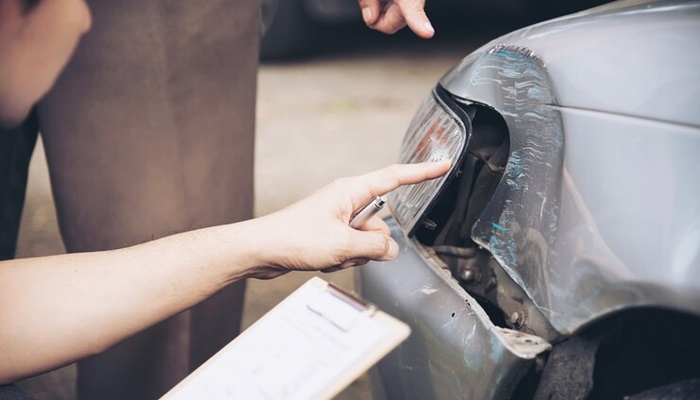Minor car accidents can feel like nothing more than a small inconvenience. A fender bender in a parking lot or a light rear-end collision at a stoplight might not seem like a big deal, especially if there are no apparent injuries or major vehicle damage. But even in these seemingly straightforward situations, legal questions can arise. So, when is it worth seeking the advice of a lawyer? Â
This article explores scenarios when hiring legal representation, such as Turner Freeman, Gold Coast personal injury lawyers, might make a difference—even for minor accidents. Â
Understanding the Definition of a “Minor” Car Accident Â
A minor car accident typically involves limited property damage and no life-threatening injuries. Examples might include:Â Â
- Scratches or dents from low-speed impacts. Â
- Accidents where airbags didn’t deploy. Â
- Collisions where both parties are cooperative and no disputes arise. Â
While these situations might seem simple to resolve, complications can occur—especially when disagreements about liability or hidden injuries emerge later. Â
When Can You Handle a Minor Accident Without a Lawyer? Â
For truly minor accidents, it’s often possible to handle the situation without legal representation. You may not need a lawyer if: Â
- There Are No Injuries: If no one involved in the accident was hurt and the damage is minimal, the insurance claims process may be straightforward. Â
- Both Parties Agree on Fault: If there’s no dispute about who caused the accident, negotiations with insurance companies may proceed smoothly. Â
- Insurance Covers the Costs: When your or the other driver’s insurance covers all damages, you might not need legal intervention. Â
In these cases, documenting the accident thoroughly—taking photos, collecting witness statements, and exchanging information—can be enough to resolve the matter. Â
Why Legal Advice Can Still Be Helpful Â
Even in minor accidents, unexpected issues can arise. Here are some reasons you might consider seeking legal advice:Â Â
1. Hidden Injuries Â
Injuries like whiplash, soft tissue damage, or mild concussions can develop hours or days after an accident. If you settle a claim quickly without recognizing these injuries, you could miss out on compensation for medical expenses or pain and suffering. Â
2. Disputes Over Fault Â
What seems like a straightforward accident can turn contentious if the other driver changes their story or their insurer disputes liability. A lawyer can help gather evidence, such as traffic camera footage or expert testimony, to strengthen your case. Â
3. Low Insurance Payouts Â
Insurance companies often aim to settle claims quickly and for the least amount possible. If you feel the settlement offer doesn’t adequately cover your repair costs, medical bills, or other losses, a lawyer can negotiate on your behalf. Â
When Should You Definitely Hire a Lawyer? Â
Some situations make hiring a lawyer almost essential, even for smaller-scale accidents. Â
1. Significant or Long-Term Injuries Â
If you or a passenger sustain injuries that require ongoing treatment, physical therapy, or time off work, a lawyer can ensure you’re compensated fairly. Â
2. Multiple Parties Are Involved Â
Accidents involving multiple vehicles or pedestrians can quickly become complicated. Determining fault and dividing liability among several parties often requires legal expertise. Â
3. The Other Driver Is Uninsured or Underinsured Â
If the at-fault driver doesn’t have enough insurance to cover your damages, you may need a lawyer to explore other avenues for compensation, such as filing a claim against your own insurance policy. Â
4. Complex Legal or Insurance Policies Â
Certain legalities—like statutes of limitations for filing claims or understanding no-fault insurance rules—can be challenging to navigate without professional help. Â
How a Lawyer Can Help Â
Lawyers specializing in car accidents can provide a range of services to protect your rights. Â
1. Case Assessment Â
An experienced lawyer can review the specifics of your accident and help determine whether pursuing legal action is worthwhile. Â
2. Negotiating with Insurance Companies Â
Insurance adjusters are trained to minimize payouts. A lawyer can counteract this by negotiating on your behalf to secure a fair settlement. Â
3. Representing You in Court Â
If negotiations fail, a lawyer can represent you in court. Even minor accident cases sometimes escalate to litigation, particularly if there are disputes about fault or compensation. Â
What to Do Immediately After a Minor Accident Â
If you’re involved in a minor accident, taking the right steps can protect your interests—whether or not you decide to hire a lawyer. Â
1. Document Everything Â
Take photos of the accident scene, your vehicle, and any visible injuries. Gather witness contact information and file a police report if required by law in your area. Â
2. Seek Medical Attention Â
Even if you feel fine, it’s wise to see a doctor. Some injuries don’t present symptoms immediately but could worsen over time. Â
3. Notify Your Insurance Company Â
Report the accident to your insurer promptly. However, be cautious about providing recorded statements without first understanding your rights. Â
4. Consult a Lawyer if Needed Â
If you’re unsure whether you need legal assistance, many lawyers offer free consultations. This can help you make an informed decision about your next steps. Â
Common Myths About Lawyers and Minor Accidents Â
Many people hesitate to hire a lawyer because of misconceptions. Let’s debunk a few: Â
1. “Lawyers Are Too Expensive” Â
Most personal injury lawyers work on a contingency fee basis, meaning they only get paid if you win your case. Â
2. “It’s Not Worth It for a Small Accident” Â
Even minor accidents can result in long-term financial or medical consequences. A lawyer ensures you’re not shortchanged. Â
3. “It Will Take Too Long” Â
While legal proceedings can be time-consuming, many claims settle out of court relatively quickly with the right representation. Â
How to Choose the Right Lawyer Â
If you decide to hire a lawyer, selecting one with relevant expertise is crucial. Look for a lawyer who:Â Â
- Specializes in personal injury or car accident cases. Â
- Has a strong track record of successful settlements. Â
- Communicates clearly and keeps you informed throughout the process. Â
Final Thoughts Â
While minor car accidents often seem simple to resolve, they can involve hidden complexities that make legal guidance invaluable. Injuries, disputes over fault, and lowball insurance offers are just a few of the issues that could arise. Â

By understanding when and why to consult a lawyer, you can make informed decisions to protect your rights and financial well-being. Whether you decide to handle the claim yourself or seek professional help, taking the proper steps after an accident can make all the difference. Â


















